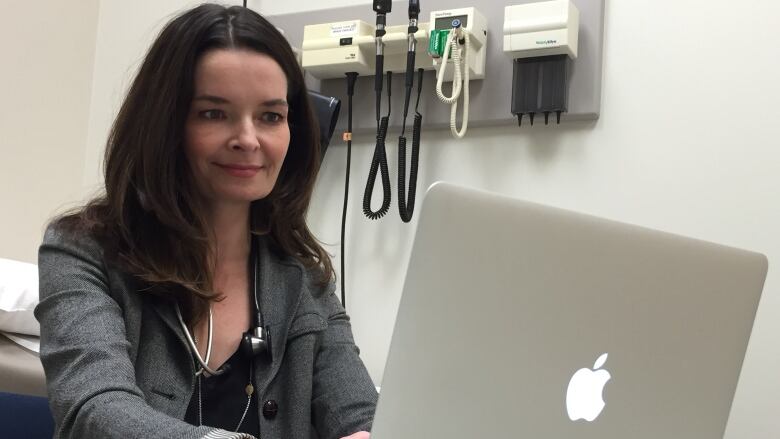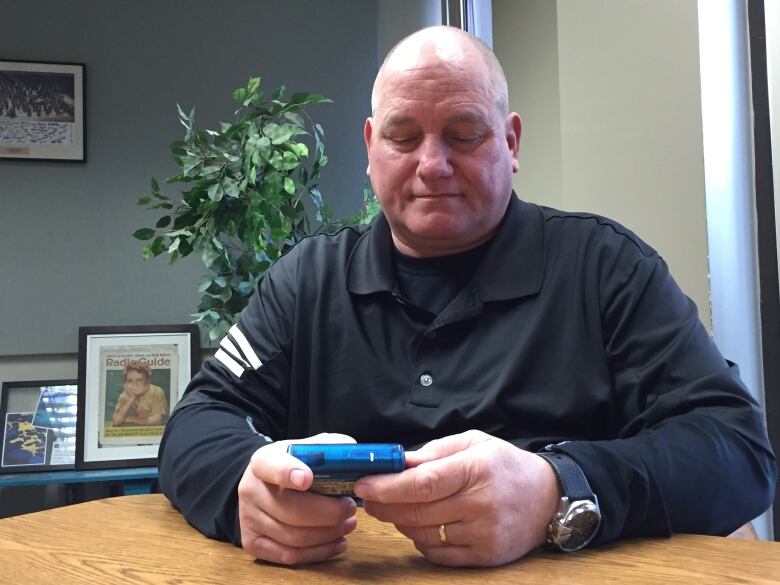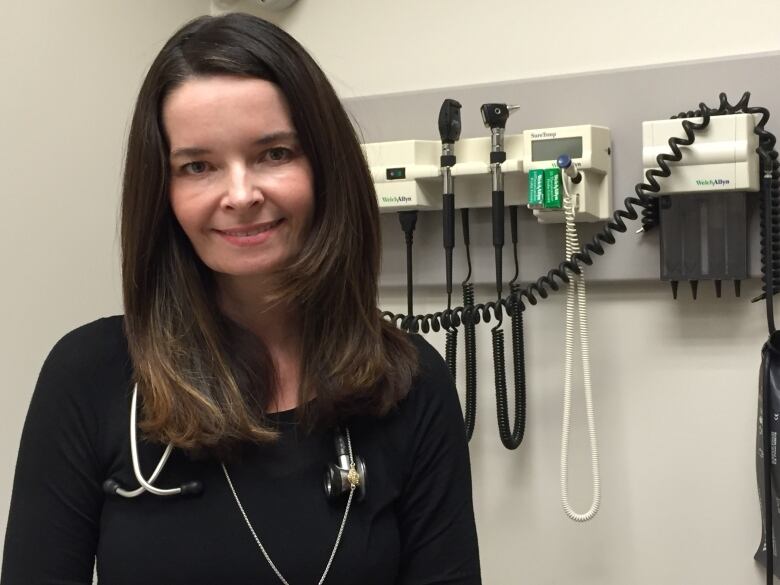Email contact with doctors craved by Alberta patients
A University of Calgary researcher says physicians need standards guiding use of email

They're some of the last hold-outs in the decades-old electronic communications revolution. As the year 2015 winds to a close, Alberta doctors are, for the most part,inaccessible to patients via email.
If some doctors and patients get their way, however,the medical community could soon be on the verge of openingits collective in-box.

Simplyput,patients want it. "We're in the dark ages," said Chris Wenzel, who has type 1 diabetes and the rareoption offiringoff an email to his doctors.
"We do all electronic banking. We do electronic document exchange with law. Why don't we do it with medicine?"
One doctor's mission
Wenzel's endocrinologist, Doreen Rabi, is on a mission to nudge more doctors into the electronic realm.
"I think this is a service that patients really want because they have it in so many other domains of their life," said Rabi who is also a University of Calgary health-services researcher.
It's the modern age and we can't communicate through e-mail?- Chris Wenzel, patient
The technology, she says, couldtake pressure off doctors and clinics by cutting out unnecessary office visits reducing congestion and wait-times.
"The idea of opening up the clinic to patients electronically has been something that's been a bit of a difficult area to navigate."
Rabi recently studied the use of email among Alberta physicians and other health-care providers who work with diabetes patients.

Her paper, published in the Canadian Journal of Diabetes, reveals a deep divide when it comes to attitudes and behaviour patterns. While most allied health-care workers surveyed such as nurses and dietitians say they regularly communicate with patients through email, doctors are much more wary.
Physician fears
The reluctance of doctors isrooted in some very real concerns ranging from security breaches that could jeopardize the privacy of health information to the inability to respond in a timely manner, liability issues andthelack of a billing system for e-visits.
I will have to be confident that we are not going to have breaches of privacy over this issue- Dr. Carl Nohr, president of the Alberta Medical Association
Despite the fears, most physicians are interested in exploring email, according to Dr. Carl Nohr,president of the Alberta Medical Association.
He sees value in the technologyas a tool to set up appointments, offer test results, provide follow-up, and even give non-urgent medical advice.
"I personally am very excited about the possibility of working in this area," said Nohr. "But I will have to be confident that we are not going to have breaches of privacy over this issue."

No formal standards
While a number oforganizations offer advice, there are no formal standards in Alberta and that is holding many physicians back.
"We must have measures in place to ensure that whatever health information might be exchanged between a doctor and a patient is kept confidential and private and is secure," said Nohr.
Working towards change
He hopes doctors will be in a position to use email safely and effectively within a year or two.
That will takea cultural shift in the medical community,and buy-in from a number of groups including the College of Physicians and Surgeons of Albertathe body that regulates doctors in this province.
The college is crafting advice for physicianson electronic data transmission a document that wil likely touch on the use of emailbut it currently has no plans to issue an over-arching standardof practise
Rabiknows gettingeveryone to sit down and hammer out a framework won't be easy, but shehopes her study will spark interest, debateand demand for change.
"The physicians really, really need some guidance and policies that protect them and protect patients," she said.












_(720p).jpg)


 OFFICIAL HD MUSIC VIDEO.jpg)
.jpg)



























































































